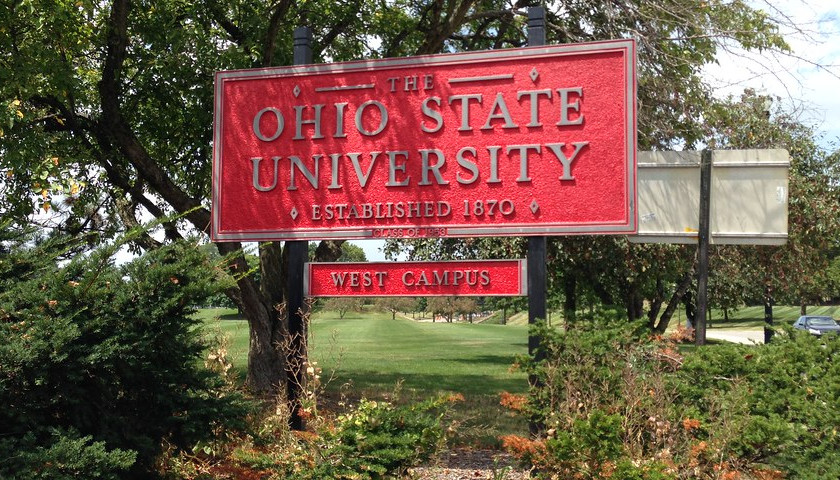by J.D. Davidson
When Ohio college students return to campus after the holidays, they will be able to speak their mind freely.
Gov. Mike DeWine signed the Forming Open and Robust University Minds Act that protects individuals’ First Amendment rights and prohibits “free speech zones” on public college and university campuses in the state.
Ohio becomes the 15th state with similar laws.
According to Senate sponsors Andrew Brenner, R-Powell, and Rob McColley, R-Napoleon, the bill prohibits colleges or universities from taking any action or enforcing any policy that limits or restricts the right of a student of that campus community to engage in political speech.
“Students should not be afraid that their speech will be squashed by institutions of higher education by restricting students to ‘free speech zones’ or using chilling tactics on those invited by students to the campus,” Brenner said.
Specifically, the bill protects peaceful, expressive activities, such as assembly, protests, speeches, petitions and guest speakers. It also bans “free speech zones,” and allows for civil action by individuals or student organizations against violations of the provisions.
House Democrats argued the bill is unnecessary, political and will enable hate speech on campuses.
“The First Amendment already protects freedom of speech on Ohio’s campuses,” state Rep. Catherine Ingram, D-Cincinnati, said. “This bill is purely political and could have a detrimental effect on Ohio’s college campuses. It could make our campuses less safe by blocking a university’s ability to regulate speech and that could potentially incite violence.”
The act was one of five recently signed into law, including a bill that allows for-profit organizations to be classified as benefit corporations. That enables for-profit groups to pursue beneficial activities in any area, such as arts, education, technology and others.
Also signed into law was a bill that modernizes the state’s drainage laws, along with a bill that creates an Alternative Employer Organization, similar to professional employer groups but with different federal taxes.
Finally, a new Ohio law extends the Women’s Suffrage Centennial Commission through the end of 2021 to allow for rescheduling of events associated with the 100th anniversary of women’s suffrage in 2020.
– – –
An Ohio native, J.D. Davidson is a veteran journalist with more than 30 years of experience in newspapers in Ohio, Georgia, Alabama and Texas. He has served as a reporter, editor, managing editor and publisher. Davidson is a regional editor for The Center Square.





